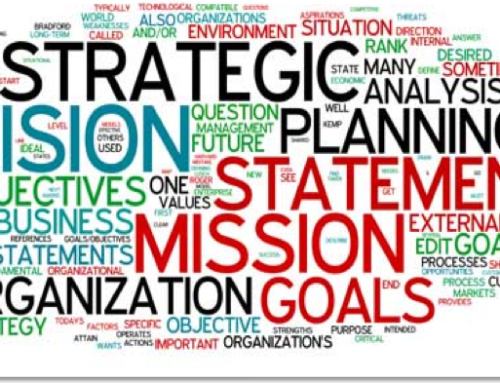 When I read yesterday’s Daily Tootzypop, I had to swallow a laugh. You see, it was titled “In Celebration of Being Short,” and began:
When I read yesterday’s Daily Tootzypop, I had to swallow a laugh. You see, it was titled “In Celebration of Being Short,” and began:
“Long or short? That is my query, as I wiggle my way into my monolithic mound of bed pillows. Sounds kinky, huh?…”
I’ve been watching Sex and the City recently, usually an episode or two before I turn in for the night, so you can see where my mind went. As it turned out, DT was talking about short stories v. regular books, and this made me think of the former in a whole different light. DT goes on to say:
“Short stories are what many of us grew up on. Come on, did you think that Little Red Riding Hood or Pinocchio were characters in a novel? Short stories are incredibly conducive to our brave new technological world of short tangents and even shorter attention spans; they are wonderfully condensed microcosms of a bigger world.”
As PR professionals, we advise our clients to tell their stories in a way that will resonate with their desired audiences; often we are hired to do this for them. Learning to create these histories (whether for our clients, or for our own businesses) as a compendium of good short stories – maybe even great ones! – instead of one long narrative is a much more interesting way to do this. Isn’t it also more in keeping with how life really works?
Do you remember the time…
Think back to your own life experience. Sure, there is an overall story arc to your path. But my guess is that rather than just being the main character in your own story, you’ve also been (or are, or might be) a supporting character in someone else’s story, the hero in someone else’s, the villain in someone else’s, and so on. Maybe you were the supportive best friend in one, or the armchair therapist in another.
And even in your own life, there are countless stories that began and ended as you made your way forward; stories from your childhood, stories from your adolescence, stories from your salad days, all with characters that shimmered in and out of them, some more constant than others.
Good storytelling
And when you remember and relate these stories, you tell them in much less time than the events actually took to occur, don’t you? You’ll use words and phrases that evoke the essence of that time. You’ll use direct instead of indirect speech. You’ll create, perhaps unconsciously, a crescendo for the narrative, taking your audience (whether they’re viewers, listeners, or both) with you. And you’ll do this in just the right amount of time, so that your audience stays with you.
Good bloggers do this all the time. They’ll tell us stories of their lives, or they’ll relate experiences or memories that stand alone as moments in time. They do this in a way that draws us in, that keeps us coming back for more. They’ll use all the techniques I’ve mentioned above, and oftentimes several others, and at the end of the story, they’ll leave us thinking.
The question
So, instead of just trying to tell “the story,” what if we started to tell “the stories,” shorter though they might be? What if we looked at the stories from every possible angle, from the viewpoint of every possible character, and told those stories instead? Wouldn’t that be much more interesting, not to mention attracting the attention of the characters themselves?
My guess is that we’ll find so much raw material at hand, we won’t know what to do with it. If we’re daring and adventurous, this is where the fun starts. Sometimes we call in agencies, or consultants, to help us out. But if we’re really wimpy, we just bury the treasure we just unearthed and go on telling a long, tall tale that perhaps people don’t want to hear any more.
And what a shame that would be. Because when people don’t want to hear our stories any more, chances are the day they don’t want to do business with us any more isn’t far behind.
Image by Dave C from Evergreen, CO, USA (Stories) [CC-BY-SA-2.0], via Wikimedia Commons
![[EVENT]: PR Hacks for Small Biz (online)](https://shonaliburke.com/wp-content/uploads/2021/06/FB-Ad-1200x800-01-01-01-Copy-500x383.jpeg)








[…] 5. The Long and the Short of It: What PR Can Learn From Good Short Stories […]
[…] can be found in everything. Memories are made of stories. Good storylines imprint right into the minds of an audience, sometimes […]
[…] can be found in everything. Memories are made of stories. Good storylines imprint right into the minds of an audience, sometimes […]
[…] 4. The Long and the Short of It: What PR Can Learn From Good Short Stories […]
Never the villain!!! LOL.
Don’t you just love Sex and the City? I watched it when I was a bachelorette in Chicago for a year. Such a treat. Mr Big was much hotter than as the Governor of Il in Good Wife.
Lisa Gerber I do now! I never watched it when it actually aired… I didn’t get into it from the start, so felt like it would be a waste of time at the end. I was just thinking recently how good the writing was, and how it raised some pretty tough issues in a very bold fashion.
I always love a good story…even better when it is “personalized”.
dbvickery Me too!
I love short stories — Hemingway’s are among my favorites. And anything that takes the intimidation factor out of storytelling is great advice. Like you said, a story doesn’t have to be a novel. In fact, a great story can be told in a minute or two — and probably should be if you want to hold people’s attention these days.
RobBiesenbach Exactly. Have you found that your own attention span has changed? I’ve noticed it in myself, and I wonder how much of it is the influence of TV, being trained to think/talk in soundbites, etc.
I certainly like novels, in fact, I love them. But some of the best novels are several short stories intertwined. I think those are actually the ones I enjoy reading the most.
Who do you think are some really good storytellers among “our lot”?
Shonali Oh, I totally blame the Internet. In fact, my judge of a really good TV show is one where I close the laptop and pay full attention. Right now that’s Mad Men and just a couple of others.
Storytellers among our lot? I guess it depends on how we define “lot.” Nancy Duarte is killer. Shel Holtz, of course, with his stories AND visuals. And I saw Malcolm Gladwell keep a ballroom of a thousand people spellbound for 45 minutes with no notes and no visuals. People criticize him for being pseudo-scientific, but he really knows how to take complex issues and make them human-scaled and relatable. I guess those are the obvious ones — I’d have to think harder about hidden/overlooked gems. What do you think?
RobBiesenbach I hardly ever watch TV any more with my laptop around. My iPhone is usually close at hand, but only for urgent messages, etc… I’ve completely gotten out of the “tweet while you watch” thing. I know, I’m in the minority now (and was back then, when I *did* do it!).
I think Seth Godin is the ultimate storyteller. He’s just brilliant. jaybaer rocks it too. And as bloggers, I think markwschaefer and lisagerber are incredible.
Shonali RobBiesenbach DId I just get included in a sentence with Seth Godin, Jay Baer and Mark Schaefer? I’ll take it!!! Thanks for the awesome compliment.
And Rob, that’s interesting about Malcolm Gladwell. Now I really want to see him speak! What a talent!
Lisa Gerber Shonali I’m worse than tweeting while I watch. I read other things while I watch, because most TV doesn’t hold my attention! It’s great to know about Lisa and Mark, and nice to “meet” you, Lisa.
And, yes, Gladwell does this “little-big-little” thing — that’s the best way I’ve found to describe it. He opens with a tiny detail or fact — human-scaled. Then he enlarges the world to encompass some grand lesson, then wraps up again revisiting the small and closing things out. I see that in the best journalism and literature. Plus his hair is just crazy!
See, as a “height challenged” individual, I had a whole different thought process when I read that post, lol!
Thinking about stories to tell, it is very hard for entrepreneurs or small business owners to see their journey as a story to be shared. It’s way too easy to get sucked into telling the features of your product, or the great benefits of your service. So it’s good to get a knock in the head sometimes!
rosemaryoneill Hahahah!!!
It really is (hard for them). Which is a shame, because they have such great stories. Do you find that invariably, the stories they don’t think are worth telling are, in fact, the most fascinating ones? I’ve seen that quite often.
“We’ll find so much raw material at hand, we won’t know what to do with it.” This is often the case with clients. They think their stories are just ‘normal life’ and that no one would care; they are actually quite extraordinary stories of struggle and acheivement. Sometimes it takes a consultant or agency to point this out.
sherrilynne Exactly! And so often those are the ones that will add real depth to their overall story, right?